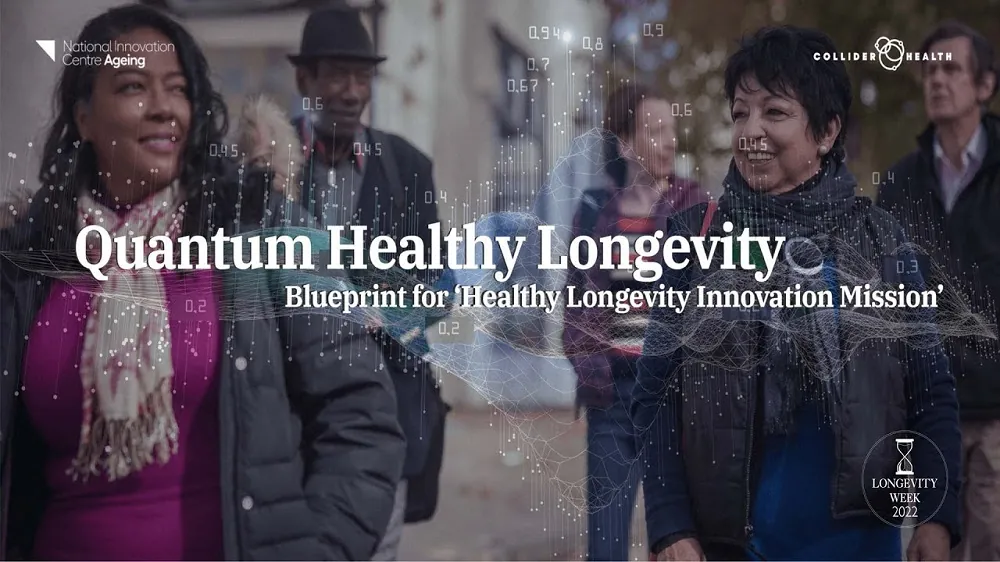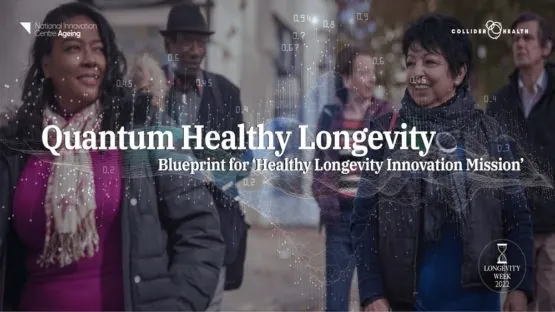Quantum Healthy Longevity Innovation Mission is a new UK-based initiative touting a multi-pronged approach to push for longer lifespans and healthspans for everyone.
Aging is complex
A couple of decades ago, researchers began to realize that aging, like diseases, can be amenable to treatment, at least in model organisms. The modern field of geroscience was born.
Since then, geroscientists have had many successes and some setbacks, but most of all, the realization grew that aging is a multi-faceted phenomenon. While we are zeroing in on common mechanisms of aging that drive multiple age-related diseases at once, the accumulation of damage that underlines aging is caused by many factors and manifests itself in many ways. Air pollution, unhealthy diet, stress, overworking, poor sleep quality, and a myriad of other things accelerate aging. This begins much earlier than we previously thought, and it even occurs in the womb.
Another realization was that aging is a societal as much as a personal problem. The world’s population is quickly graying, and the diseases of aging create an immense burden on the healthcare system. In a paper from last year, the economic benefits from increasing healthspan for just one year by slowing aging were put at a staggering 38 trillion dollars.
Familiar faces, ambitious approach
In recent years, various initiatives have begun to appear that attempt to tie basic research, investment, regulation, policy, environmental issues, and advocacy into a tight knot of cooperation. For instance, we have previously written about the Longevity Biotechnology Association, which wants to bring together researchers, industry CEOs, and investors to forge a common vision.
This time, the announcement came from the UK with some familiar names attached to it. This new initiative, Quantum Healthy Longevity Innovation Mission, is led by people such as longevity social entrepreneur Tina Woods, professors Nir Barzilai, Bryan Kennedy, Nic Palmarini, and Andrew Scott, and Dr. Alex Zhavoronkov. The impressive scope of the project was outlined in an article published in Lancet Healthy Longevity:
We need to take a multipronged whole-of-life approach to tackle all the different, but interacting, drivers of health and disease. These include lifestyle factors, such as diet and physical activity; socioeconomic determinants, such as discrimination, early and lifelong education, training and skills, financial status, and social support; and, increasingly, the characteristics of physical environments, such as green spaces and air quality.
You can also watch the Mission’s launch video or check out the accompanying brochure.
Everything matters
What do socioeconomic factors such as inequality have to do with longevity? In recent years, the rise in life expectancy that has been a source of pride for humanity (and one of the reasons the world population hit 8 billion just a few days ago) has slowed down, even when not accounting for the devastating effect of the COVID-19 pandemic. In some populations in the US, life expectancy is shrinking, which has been attributed to various environmental factors, from the opioid epidemic to unhealthy eating.
Inequality in life also means inequality in death. As the Lancet paper notes, in the UK, there is a 20-year difference in healthy life expectancy between the richest and the poorest (for the US, it’s 15.5 years). If you want people to live healthier for longer, you can invent a new drug, which would be commendable, or you can help bridge this gap.
This explains why the concept of the “exposome” – the aggregate of all external factors that influence health and well-being – is at the heart of the Mission’s approach. This organization believes that the fight against aging must be fought, to quote a famous Brit, “in the fields and in the streets” as well as in the laboratories. Those are not empty words: among the initiative’s stated goals are “Longevity Cities” (urban environments that are optimized to provide health and well-being for their inhabitants) and regional innovation clusters.
Longevity ecosystem
The initiative is planning to utilize some UK-specific strengths, such as the vast amount of longitudinal health data accumulated by the National Health Service (NHS). British health data repositories such as the UK Biobank are already widely used by geroscientists. Quantum Healthy Longevity aims to create a bank of aging biomarker data and an atlas of geroprotective interventions.
Of course, public policy is an essential ingredient in this all-encompassing formula. A push towards longevity requires favorable changes in regulation, and the Mission will be supporting more progress-friendly biotech and data regulation and finance reforms, making it easier for pensions to invest long-term capital in innovation, for example (which is a part of the “longevity ecosystem” as envisioned by the Mission’s leadership).
To sum things up, the Mission is an ambitious longevity-related and prevention-oriented enterprise aiming to create a strategy and an ecosystem that promotes health and longevity on virtually all levels, from research to regulation and investment to education. “The reason we’re launching this is that we have a health crisis, and not just in the UK, but around the world; we know we need some very different solutions to address this”, Tina Woods said at the launch event, and it looks like there is no shortage of proposed solutions in the Mission’s documents.




